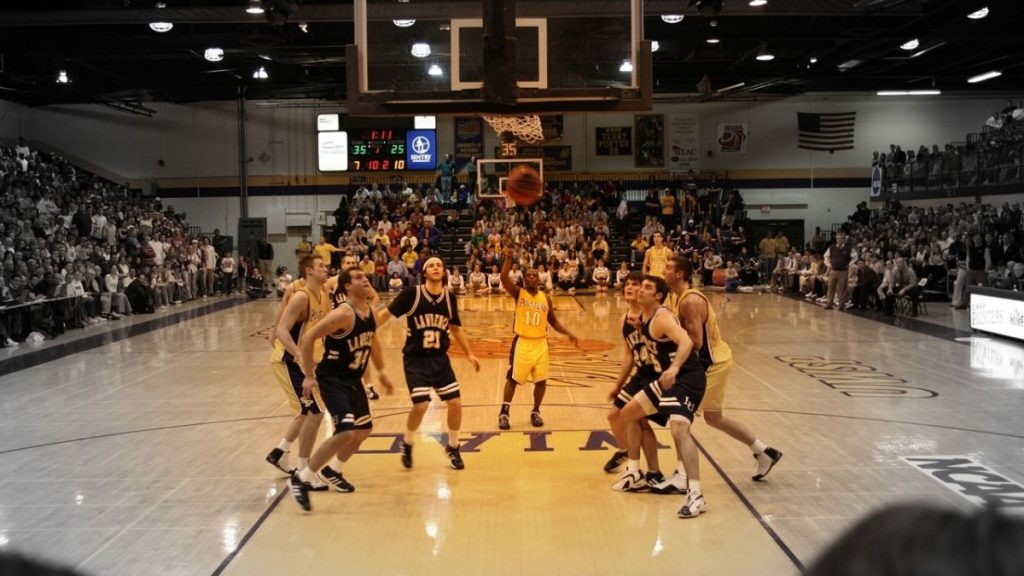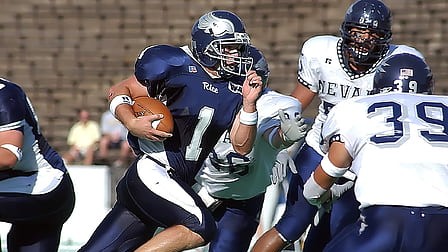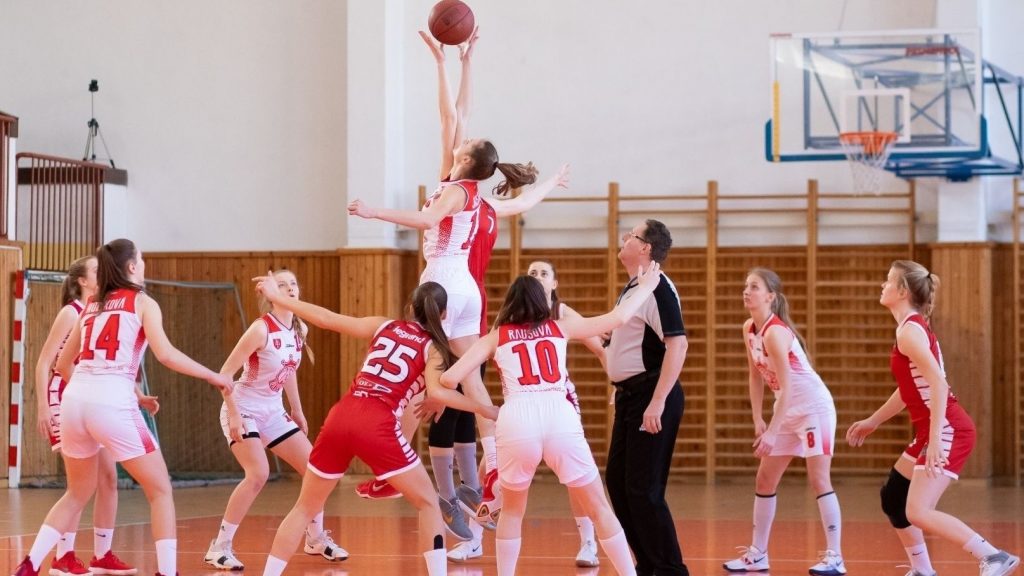Black College Athletes Claim NCAA Is Violating Their Civil Rights
A complaint was filed with the Department of Education claiming Black athlete's civil rights are being violated.

According to the National College Players Association (NCPA), Black college athletes’ civil rights are being violated by the NCAA. This claim comes from NCPA executive director, Ramogi Huma, who filed a civil rights complaint with the Department of Education. The complaint attests that because of the NCAA’s cap on athlete compensation, Black athletes are impacted the greatest because they represent a higher percentage of athletes in major Division I sports.
In the NCPA complaint, they state that “the industry-wide [NCAA] compensation limit causes a disparate impact on Black college students” who are also athletes among the 350 Division I colleges and universities. They also cite that their position concerning Black athletes is propped up by Supreme Court Justice Brett Kavanaugh’s position on the Alston v NCAA case. In part, Kavanaugh wrote, “The NCAA and its member colleges are suppressing the pay of student-athletes. …But the student-athletes who generate the revenues, many of whom are African-American and from lower-income backgrounds, end up with little or nothing.”
Buoyed by Kavanaugh’s words, the NCPA is hoping to remove the cap on athlete compensation, more pointedly the Black athletes. They are looking to open the door, possibly, for athletes to receive additional monies from the schools they play for. Included in the 9-page complaint filed with the Department of Education, the NCPA detailed the millions of dollars that Black athletes are losing out on based on the NCAA caps. According to the complaint, men’s basketball players are losing $164,000 each year while women’s basketball players are losing $24,000. They estimate that men’s football players are out $185,000 a year.

“College athletes throughout predominantly white sports receive fair market compensation [in the form of athletic scholarships], but athletes in the only predominantly Black sports [FBS football and men’s and women’s basketball] do not,” Huma said to Sports Illustrated. “All college athletes should have the opportunity to receive fair market pay. This can happen without cutting any sports. Colleges would just have to spend a bit less on coaches’ salaries and luxury facilities.”
Also included in the complaint is what the NCPA calls “an abuse of Pell Grant funds.” This claim is based on the fact that the Pell Grant – federal government monies up to $6,500 awarded to low-income students based on need – would not have to be given out to any Black football or basketball athlete if they were only “compensated fairly” by the schools. Kavanaugh also spoke to this point in Alston v NCAA. “The NCAA concedes that its compensation rules set the price of student-athlete labor at a below-market rate,” Kavanaugh wrote. “The NCAA couches its arguments for not paying student-athletes in innocuous labels. But the labels cannot disguise the reality: The NCAA’s business model would be flatly illegal in almost any other industry in America.”
The NCPA did offer their solution to the black athlete issue within their lengthy complaint. “The elimination of these civil rights violations and the abuse of Pell Grant funds by ending collusive athlete compensation limits among Division I colleges that deny fair market compensation to college athletes.” Their remedy comes as the NCAA has already loosened rules surrounding college athletes and their ability to now receive compensation from the use of their name, image, and likeness.

“The big picture here is that we are looking to push the envelope with federal agencies,” Huma said via USA Today. “There are agencies that already have legal authority to bring forward reform in NCAA sports that will benefit players. We don’t need a new labor law. College athletes are employees. We just have to have college athletes recognized as employees under existing laws.”
The NCPA’s civil rights complaint involving black athletes isn’t the only one that the NCAA is dealing with. In Pennsylvania, an ongoing lawsuit is being heard in federal court that is looking to have college athletes be recognized as school employees by way of the Fair Labor Standards Act. In California, there is another ongoing lawsuit that looks to take things one step further. On top of asking for the NCAA compensation rules to be removed, the lawsuit is also seeking enormous reparations for past athletes who would have benefited if those NCAA rules did not exist.
The days of receiving a free education are long gone for student-athletes. They want to be paid for their efforts and while they finally are now, it isn’t enough. Why it must always turn into a race issue concerning Black athletes is a mystery, but the NCPA appears to want to press it.



